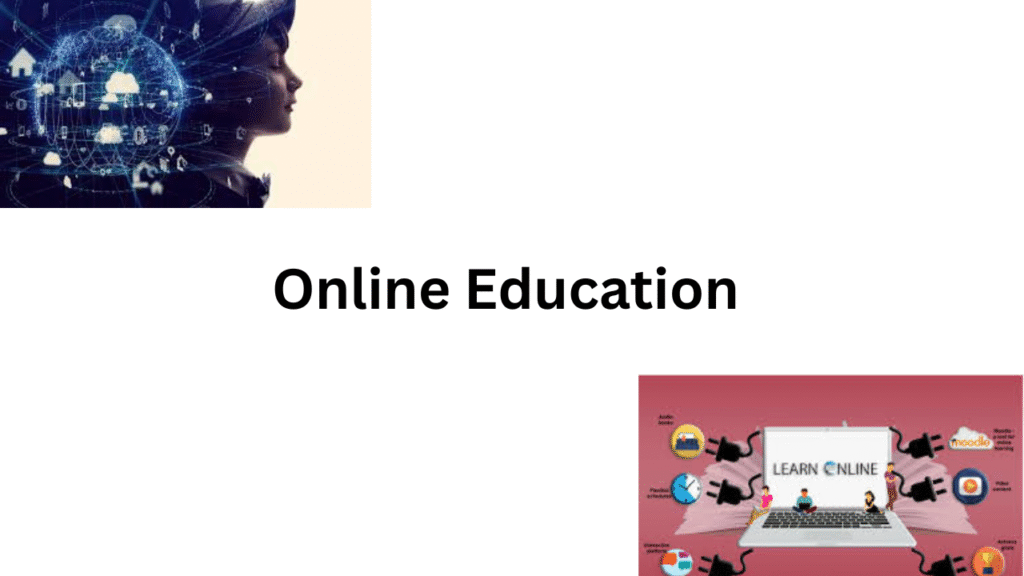
Introduction
Online is a modern way of learning that uses the internet to connect students and teachers. It provides access to courses, lectures, and study material from anywhere in the world. Online is flexible, cost-effective, and suitable for students who want to learn at their own pace without traditional classroom restrictions.
History and Growth of Online Learning
The history of Online began with early distance learning programs in the 20th century. With the rise of the internet, Online platforms expanded rapidly across the globe. Today, Online is offered by top universities, schools, and private institutes, making learning accessible to millions of people worldwide.
Importance of Online Education in Today’s World

In today’s digital age, Online has become a necessity. It allows students to manage their time, study from home, and continue learning during global challenges like the COVID-19 pandemic. Online is important because it provides equal opportunities to learners, no matter their location or financial background.
Benefits of Online Education for Students
Online offers many benefits such as flexibility, affordability, and access to global resources. Students can attend classes online, replay recorded lectures, and balance their studies with work or family responsibilities. Online also helps learners connect with international teachers and peers, broadening their educational experience.
Challenges Faced in Online Education
Although Online is growing rapidly, it faces some challenges. Poor internet connections, lack of digital devices, and reduced teacher-student interaction make Online difficult for many students. Staying motivated in Online also requires self-discipline, which some learners struggle with compared to traditional classrooms.
Role of Technology in Online Learning

Technology is the backbone of Online. Video conferencing tools, digital whiteboards, and online exams make Online more effective. With mobile apps, AI-based tutors, and virtual reality, Online is becoming more interactive. Technology ensures that Online provides students with a modern and engaging learning environment.
Online Education vs Traditional Education
Online Education offers flexibility and accessibility, while traditional focuses on face-to-face interaction. Online is cheaper and convenient, whereas traditional learning helps in developing social and communication skills. The best approach is a combination where Online complements classroom learning for maximum benefit.
Impact of Online Education on Teachers and Institutions

Teachers and institutions are adapting to the demands of Online Education. For teachers, it creates new opportunities but also requires digital teaching skills. Institutions benefit from Online as it expands their global reach. However, maintaining quality and discipline in Online Education is still a major challenge for schools and colleges.
Future of Online Education in the Digital Era
The future of Online is bright with innovations like artificial intelligence, gamified learning, and virtual classrooms. Online will continue to evolve as more students prefer flexible digital options. With advanced tools, Online is expected to dominate the global education system in the coming years.
Conclusion:
Online has revolutionized learning by making it more flexible, affordable, and accessible. Despite challenges, its benefits are far greater and more lasting. With technology improving every day, Online will continue to shape the future of education. For students worldwide, Online is no longer an option but a necessity.
FAQs
Q1: What is Online Education?
Online is a digital learning system that uses the internet to provide courses, lectures, and study material to students anywhere in the world.
Q2: Why is Online Education important?
Online is important because it offers flexibility, affordability, and access to global knowledge, helping students learn at their own pace.
Q3: What are the main benefits of Online Education?
The benefits of Online include flexible schedules, lower costs, recorded lectures, and opportunities to connect with international teachers and students.
Q4: What challenges do students face in Online Education?
Students often face challenges such as poor internet connectivity, lack of digital devices, reduced interaction, and difficulty staying motivated in Online.
Q5: How is Online Education different from traditional education?
Online allows learning from home through digital tools, while traditional education requires face-to-face classes. Both methods have unique advantages.
Q6: How does technology improve Online Education?
Technology improves Online through video conferencing, mobile apps, AI tutors, and virtual classrooms that make learning more interactive and engaging.
Q7: What is the future of Online Education?
The future of Online is promising, with innovations like artificial intelligence, gamified learning, and VR making digital learning more advanced and effective.






Leave a Reply